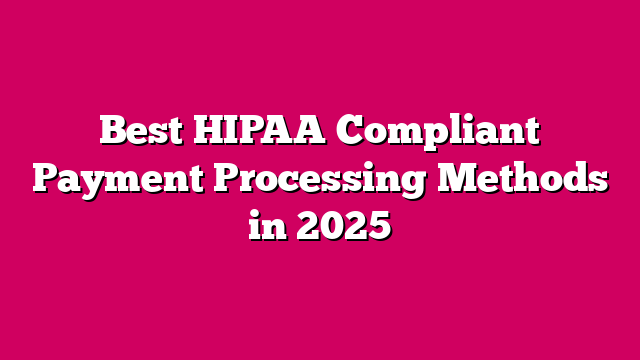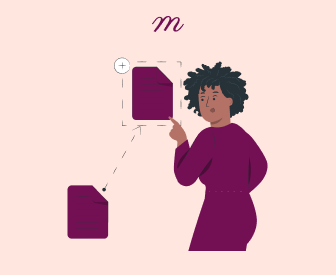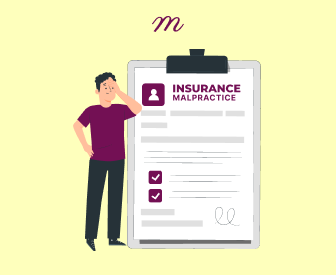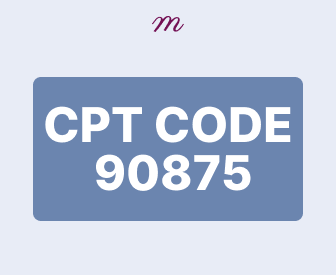Have your progress notes written for you automatically
Are you finding it difficult to process your bills and get paid as a mental health professional? Then, this ultimate guide to private practice billing services is for you. Documenting all services you render to clients no longer has to be a hassle. You can also track your payments with ease.
Here is everything you need to know for a more efficient billing service process. You will be able to identify the most suitable billing service method for your practice. Now, you can be free from the constant struggle with billing and dedicate your time for patient care.
What are Private Practice Billing Services?
Private practice billing services are professional billing companies hired by private practices. Their core task is to handle the billing process also known as Revenue Cycle Management (RCM). They assist private healthcare practitioners with medical billing, coding, and collection of claims. This enables you as a mental health professional to focus on quality client care.
Why Do You Need Professional Billing Services?
Understanding how billing services enhance your private practice is important. You will also be able to decide which billing service is best for your practice. The following includes what a billing service can offer you:
Data entry of patient demographics, insurance information, and service details
Translation of documentation into code
Compilation and submission of electronic and paper-based claims
Generation and mailing of patient statements
Receiving and tracking bill payments from third-party and from patients
Providing management reports
Compliance with regulations that govern healthcare billing
Automating reminders to patients about their appointments
Providing secure online access for patients to make payments
Verification of patient’s insurance coverage
Appealing for denied claims
Managing appointment scheduling
Choosing The Right Billing Service Method: In-house Vs Outsourced Medical Billing Service
In-House Billing Service
The in-house billing option requires you to hire, train, and manage your own billing staff. An in-house biller is usually hired as an internal staff member. You will need to put the billing staff on a payroll and make provision for employee benefits. It means you need to provide them with office space, and other equipment needed. They will also need computers, software, and internet access. Their goal is to help with all your billing processes. They help to ensure faster payment collection and boost your revenue.
Outsourced Billing Service
This service requires a third-party billing company. They manage the billing process for your practice. This includes generating invoices, tracking your claims, and processing your payments. The outsourced company has its own staff, facilities, and technology. You wouldn't need to invest in more equipment or software. The outsourced company stays up-to-date on billing regulations and coding practices. They also work to save you money and improve your cash flow.
By outsourcing, you relinquish some day-to-day control over your billing process. This can make it harder to track your practice’s progress. Sometimes, this lack of direct oversight leads to misunderstandings and delays. It has the potential to impact both patient satisfaction and timely reimbursements.
Integrating Electronic Health Record (EHR) System in Your Private Practice
This involves paying an EHR platform to take care of your billing processes. You can integrate the EHR system of your private practice. This will help to streamline the data transfer and coding process. You can also provide vital information about clients and your sessions.
With the EHR system in place, you can prevent workflow delays. You can also ensure accurate data exchange. The benefits of billing service integrated with electronic health record include:
Less paperwork: This will increase productivity and improve your services to your patients.
Increased Profit: It helps to increase your profits and cash flow.
Accurate Billing: Billing services integrated with EHR data are efficient and precise. They ensure to avoid billing errors or mistakes.
Clinic management: You can use the software to manage all administrative tasks. This includes managing and scheduling appointments online with your clients. You can also use it to manage your staff’s payroll. But it involves extra costs for setup and maintenance. It also faces challenges with the protection of its clients' information.
What to Expect from Private Practice Billing Services
Coding
For mental health professionals, documentations include progress notes, treatment plans, and discharge summaries. Private practice billing services translate your therapy sessions and clinical documentation into codes. The codes reflect the services you provide. This includes services such as individual psychotherapy, or group therapy. Billing services use the correct procedure and diagnosis codes to bill insurance companies.
Submission of claims
The billing companies ensure the timely submission of your claims. They help you determine how much the insurance company will pay you for your services.
Follow up
Billing services are apt in following up with your denied claims. They help you deal with incomplete or overdue payment. Their core tasks include curbing delays and handling issues with insurance companies.
Payment
They help you track the incoming payments from the insurance company with ease. Sorting out the outstanding bills from your clients is one of their key services. Their goal is to provide faster reimbursement, and enhance your practice's cash flow.
Compliance and Update
There are rules and regulations that govern billing practices for mental health practitioners. These billing services keep up to date with the new policies and regulations.
Factors to Consider when Selecting a Billing Service
The following are factors to consider when selecting a good private billing option.
Cost of billing service
The cost varies based on the method and services of the billing service you chose. You can seek payment clarification from the billing service company of your choice. It is best to ask them about start-up fees, termination fees, and data conversion fees. You need to check if it suits your needs and budget. Also ensure to check if there are no hidden fees. Although, the billing service fee can vary based on your practice size. The location of your practice also influences the billing service costs. Some billing services might request for a percentage-based rate or a flat monthly fee. Based on your service needs, billing services can be a wise investment for your practice.
Billing Process
The billing service should have a proven track record of submitting claims. This involves capturing all billable services provided to your patients. Then, translating them into clear, error-free claims following payer guidelines. Their aim should be to maximize the chances of claim acceptance on the first submission. It will help to reduce denials and delays, ensuring a steady cash flow for your practice.
Expertise
The billing service needs to have comprehensive knowledge of your private practice. This is crucial especially if you're a mental health practitioner. Mental health billing has specific requirements compared to general medical billing. Get a billing service with a proven track record of success. They should be familiar with the unique coding requirements. Also, they need to understand reimbursement challenges. These challenges come with therapy sessions, group counseling, and other mental health services.
Reporting
The billing service you choose provides complete and comprehensive documentation. Their reports focus on your specific needs and adhere to healthcare billing regulations. It is vital they provide dates of service, and billed amounts. They need to also report collected payments, and any outstanding balances. This reduces the risk of errors. They also ensure to submit your claims and reports . This level of detail allows you to track your practice's financial health. It helps you to identify areas for improvement.
The Offer
Check what they have to offer if it aligns with your practice. Is it what you expect to get or need? Also, check if their audit processing is reliable. Get answers to all the questions you have about the services they offer. For direct interaction and communication, information sharing is important. The billing service needs to maintain secure information sharing and verification processes. There are several top-rated private practice billing services in the United States. These services allow therapists to focus on patient care. They do this by handling the complete billing cycle. This includes claim submissions, insurance verification, and managing patient payments.
Additionally, AI software documentation tools like Mentalyc can further streamline administrative tasks. Mentalyc provides efficient note-taking and documentation of progress notes for mental health professionals. This tool assists you with enhanced patient care, saves time and is 100% HIPAA Compliant. This ensures they meet both billing and patient care requirements.
Conclusion
The billing process is crucial for the financial success of your private practice. Private practice billing services help to streamline your billing processes. Their core task is to deal with your revenue cycle management. This is crucial for running a successful mental health practice. This guide has provided the knowledge you need to make informed decisions about your billing services. It will help to ensure a smoother workflow and an improved cash flow for your practice.
Frequently Asked Questions
Who Owns Your Billing Data?
Your billing data belongs to you. It is your practice’s private information. You should be able to take it with you if you decide to switch billing services.
What are the Benefits of Using Private Practice Billing Services?
Billing services reduce your administrative tasks, and minimizes your billing errors and losses. They ensure the effective processing of your bills while ensuring your practice's growth. You can scale up without extra staff and focus on other aspects of your practice.
Mental health billing service will help you handle the time-consuming tasks. This helps to free up your time to focus on patient care. You also get to enjoy increased efficiency, higher revenue, and improved cash flow. They help you receive faster payment and ensure higher claim acceptance rates.
What are the Disadvantages of Private Practice Billing Services?
Billing processes in private practice can be difficult. This is due to the constant changes in its rules and regulations. Other challenges include coding changes, managing insurance verification, and tracking claims submissions. These can be stressful and time-consuming. It can also lead to revenue loss and strained patient relationships.










